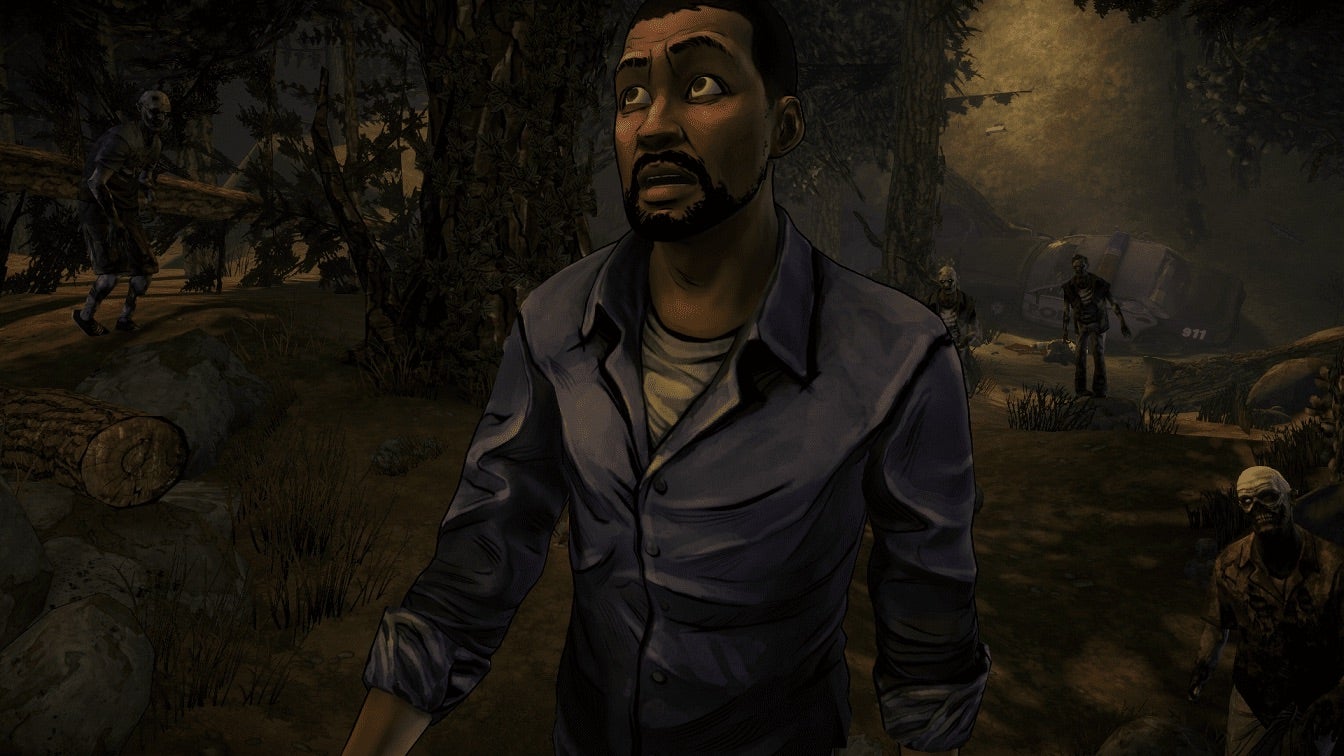The best television is happening in video games
If you’ve read any article about TV in the past few years, you know we’re in its “Golden Age.” From experimental beauties like Atlanta to film-quality concept shows like Game of Thrones, the medium has never been better. It’s also never been harder to define. TV has grown beyond that box in your family room to include everything from streaming apps to Blu-ray box sets.


If you’ve read any article about TV in the past few years, you know we’re in its “Golden Age.” From experimental beauties like Atlanta to film-quality concept shows like Game of Thrones, the medium has never been better. It’s also never been harder to define. TV has grown beyond that box in your family room to include everything from streaming apps to Blu-ray box sets.
At the same time, the video game industry has iterated on its own storytelling techniques, producing narratives to rival other mediums. Story-driven games—which I’ve worked on in the past as a writer at the video game studio BioWare —typically have both deep narratives and traditional game mechanics, like competition, strategy, struggle, or cooperation. This makes experiencing the narrative of games like The Witcher 3: Wild Hunt or Uncharted 4: A Thief’s End markedly different from watching a TV show, which doesn’t dole out the plot based on an audience’s skill at gameplay.
But within narrative video games, a subset of tightly scripted, branching-path experiences have emerged. These games require only minor interaction, use filmic storytelling techniques, and are released episodically. In other words, these video games rival the best of what’s on TV. They’re also unique narrative experiences that represent the future of the medium.
What is TV anyway?
Television is a notoriously difficult medium to define. At its most basic, it’s a combination of visual and audio output. Beyond this, the definition often deteriorates into US Supreme Court Justice Potter Stewart’s “I know it when I see it” rule, meaning that it is both obvious and hard to precisely articulate.
TV is usually episodic or serial, except when it’s a one-night event like a charity concert or special news briefing. It always takes place on screens, unless it’s on a projector. And it doesn’t require too much user interaction, although controllers, remote or otherwise, are necessary to view it. With these loose, guiding principles, it’s easy to see why TV has become one of the most open storytelling mediums, encompassing everything from nightly local news to prestige miniseries.
The introduction of the internet only increased television’s elasticity. Web series, online talk shows, and animated shorts are all currently within its bounds. This is due to these formats’ connection to and genesis from legacy TV. Scripted, branching-path video games have a different lineage. This doesn’t make them any less televisual, and it shouldn’t make them any less appealing to TV fans.
Why you should care about these interactive stories
You’re probably already thinking that you’ve got more than enough TV to catch up on—why add video games to the list? What’s unique about episodic, branching games is that they give audiences the chance to interact with a story while simultaneously experiencing it.
Have you ever wondered what would have happened if Robb Stark hadn’t gone to the Red Wedding in Game of Thrones? Or if Mike had known immediately that Eleven was in Hopper’s cabin throughout Stranger Things 2? Branching, cinematic video games allow players to alter the story on-screen, choosing dialogue and actions that determine how the story unfolds. They’ve only come to the fore in the past half decade thanks to companies like Telltale Games—which has structured itself like a TV studio—focusing on “innovation in…storytelling” rather than gameplay. And, when done well, they represent some of the very best television out there.
Batman: The Telltale Series is a great example of how these narrative video games incorporate the best aspects of both television and interactive storytelling. It has tight dialogue, a singular reimagining of Batman’s supporting cast, and compelling narrative mysteries. It’s one of the very best on-screen versions of the Batman mythos. Telltale Games’ Batman outstrips every small-screen superhero drama running—excluding perhaps Jessica Jones—with its focus on the psychological toll of dual identities and its grounding in contemporary issues. What’s more, it lets the player determine if they want to be a symbol of hope or a Dark Knight.

In the episodic game Life is Strange: Before the Storm, a budding relationship develops between two teenage girls. The game is heavy on ennui, melodrama, and angst. It’s also a touching, amazingly realistic depiction of adolescent romance. And the opportunity to determine the direction of the protagonists gives it heft that would otherwise be missing from its standard coming of age tale.
Beyond branching plotlines, these games also open space for stories barred by the constraints of traditional TV. King’s Quest, an episodic game released last year, brings high fantasy to the small-screen without the prohibitive expensiveness of live-action epics.
At the same time, the Telltale Games video game version of The Walking Dead has been able to focus on a quieter part of the apocalypse, eschewing the over-hyped premieres and cliffhanger finales of the show. By not having to conform to a network schedule, Telltale Games’ The Walking Dead has kept their zombie narrative vital in a way that the television counterpart has failed to.
The television will be revolutionized
The fact that TV has always been a difficult medium to pin down is a good thing. The format’s looseness is responsible for the current “Golden Age,” which, in part, resulted from premium channels being allowed into the market. Much of what we consider TV today wouldn’t have been possible when the medium first started. But by keeping the doors open to new experiments, TV grew into itself.
Networks are starting to realize that interactive narratives might be the next step in the medium’s evolution. At the end of its first season of Westworld, HBO released an interactive narrative on the show’s homepage allowing users to role-play as a guest investigating the events of the finale. Mr. Robot, USA’s prestige tale of hacktivism in the age of corporatization, has also experimented with various forms of branching storytelling. As these sort of ancillary stories slowly fuse into the medium, many will claim they’ve discovered a new form of storytelling.
But the best place to witness this evolution is in video games, where episodic, branching games like Life is Strange, The Walking Dead, and King’s Quest provide a valuable blueprint for how TV can continue to grow, whether that means branching paths, fully-realized settings, or singular stories. TV’s future is already here. Make the right choice and start shaping your favorite stories now.